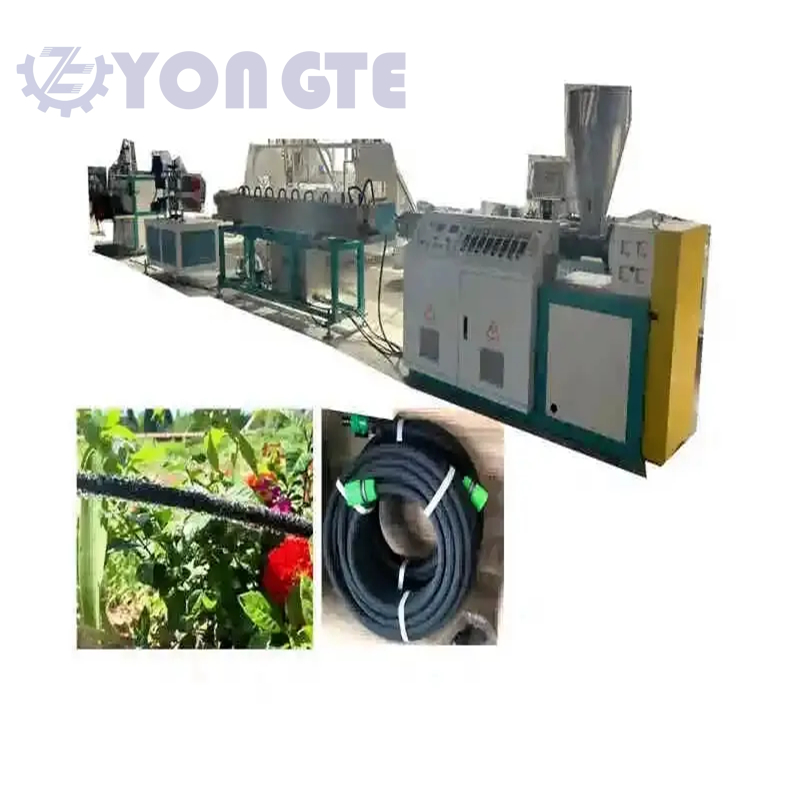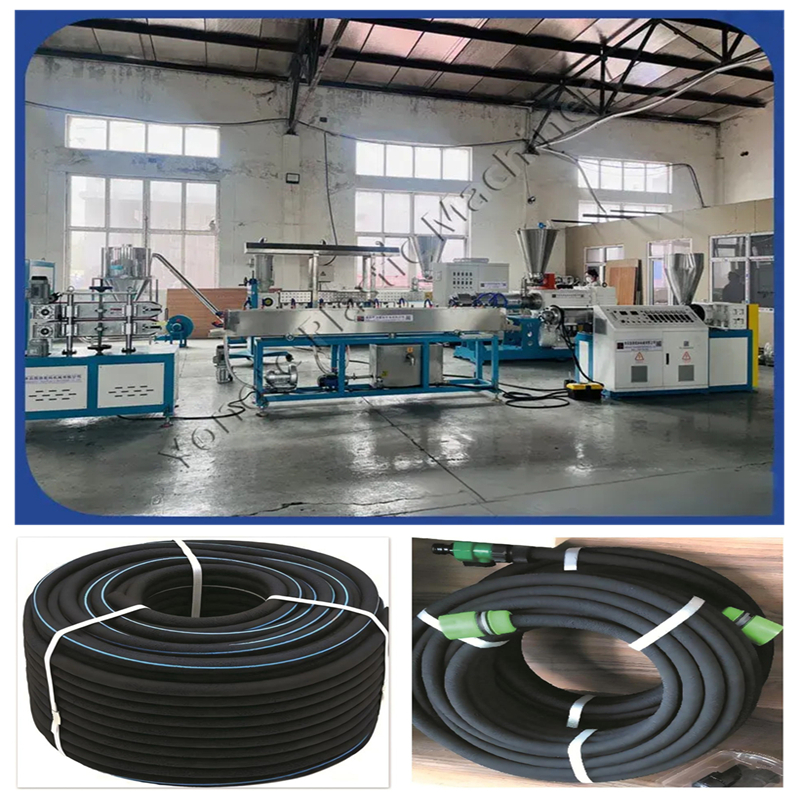Yongte's rubber seepage pipe production line transforms waste tires into effective irrigation tools.
The 1 billion waste tires generated globally each year create piles of "black pollution mountains." These tires take centuries to degrade naturally. Piling them outdoors not only takes up land but also releases heavy metals during rainy days, polluting the soil and water. Incineration, however, creates highly toxic dioxins, a potentially devastating ecological disaster. Yongte's plastic machinery-based rubber seepage pipe production line breaks new ground by transforming waste tires into high-performance agricultural pipes, tackling pollution challenges while generating substantial profits.
Core Process for Turning Waste into Treasure
This line specifically treats aged and damaged "junk tires." Through fine crushing and impurity separation, it transforms the troublesome waste tires into a uniform rubber powder feedstock. Compared to the secondary pollution caused by landfill and incineration, this process itself is an environmental victory. Based on an annual processing capacity of 5,000 tons per line, this is equivalent to eradicating 200 mu (approximately 16 acres) of "tire graveyard" and removing 100,000 environmental tumors.

Agricultural Irrigation: Performance Smashes Traditional Drip Irrigation
Anyone who's worked in the fields knows the three biggest drawbacks of plastic drip irrigation pipes: high cost, clogging, and root damage. The advent of rubber seepage pipes has delivered a significant improvement:
Save money and worry: Traditional pipes made of new plastic (PE/PVC) cost 1.2-2 yuan per meter and need to be replaced every three to five years. Ours, made from scrap tires, reduces costs by 40% (0.6-1 yuan per meter) while doubling their lifespan to 8-10 years. A 60% overall cost savings translates to substantial profits for budget-conscious farmers.
Clogs? No way! Traditional drippers are so delicate, they'll stop working if there's even a bit of mud or sand, forcing farmers to clear the pipes under the scorching sun. Rubber pipes rely on "full-body water seepage" technology—water seeps evenly through the pipe wall, leaving no room for clogging. Even if you're irrigating with Yellow River water, water seeps through without issue, requiring 70% less maintenance.
Root nourishment and increased yield: Spot watering with plastic pipes can easily cause root rot, while rubber pipes allow for even water distribution over 30-50 cm (the golden guideline for soil moisture is 18%-22%). Comparative greenhouse tests are particularly telling: crop root systems are 25% more developed and fruit deformities are 18% fewer. Pretty impressive, right?
Durable: It won't crack at -30°C or collapse at 60°C, and can even be recycled after being scrapped. Compared to plastic pipes, which become white pollution as soon as they're used, it's a textbook example of a circular economy.
They're also experts in fish farming. Their use for oxygenation is even more impressive: microporous foaming increases dissolved oxygen efficiency by 30%. The rubber material withstands ammonia and nitrogen corrosion in fish ponds, extending its lifespan by five years compared to plastic pipes. This translates to an additional 3,000 yuan per mu (approximately 1.5 acres) of pond revenue – waste tires have thus been transformed from a "pollution source" to a "profit-making tool."

A golden track on the cusp of a boom
Any discerning eye can see that this project has hit the right note: With global carbon reduction policies driving the trend, solid waste recycling projects are receiving continuous tax breaks, subsidies, and support. Market demand for water-saving irrigation is growing by over 12% annually, and the challenges of traditional drip irrigation are accelerating the adoption of rubber hoses, leaving a 50 million-kilometer unmet demand gap waiting to be filled.
A single line boasts a payback period of 1.5-2 years, and the raw material (scrap tires) is both inexpensive and plentiful, ensuring ever-increasing profits. Whether it's for environmental companies transforming or capital investment in green industries, this deal is a win-win for both environmental and economic reasons, a true "golden track" for resource recycling.